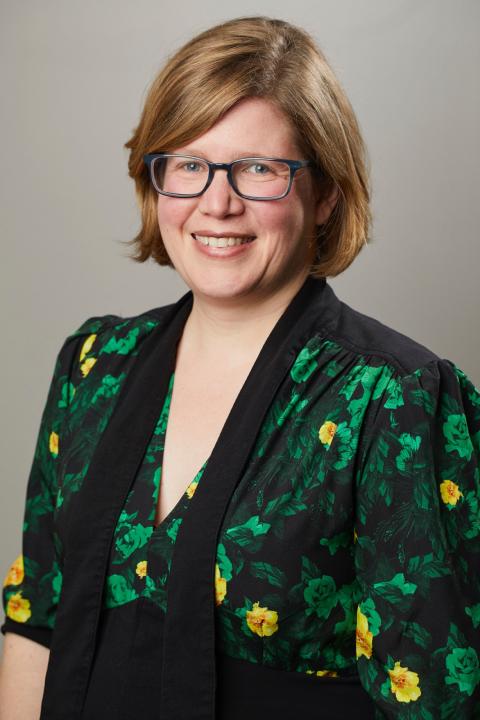Don't see what you're looking for?
Main Site
Berklee.eduCampuses and Schools

Kelly Davidson
Alison Plante
For media inquiries, please contact Media Relations
- Exchange Fellow, Cambridge University
- Founder of Treble Cove Music
- Television credits include scores for the History Channel, the Annenberg Channel, and PBS
- Numerous national television commercials for clients including GMAC, Animal Planet, National Geographic Channel, Spalding Sports, and W.B. Mason
- Additional scoring credits include multimedia museum exhibits at the Harvard Museum of Natural History and the Smithsonian Institution, and music for theater
- Winner of the Janet Gates Peckham International Award
- Menn Foundation Prize
- B.A., University of Chicago
"In film scoring there is a tendency to use more and more synthesis with budgets shrinking and with the technology getting better. In the synthesis and sequencing applications course, I teach how to make technology tools sound as close as possible to a real orchestra or ensemble, as well as teaching skills specific to film scoring."
"I want my students to know how to approach and learn a new piece of hardware or software. The technology changes so quickly, so they need to know how to get up to speed. I try to build confidence, especially in troubleshooting, because any time you deal with technology, you have to be able to fix it yourself. I teach my students to use technology as a tool that helps them but doesn't limit creativity. They also need to know the limitations of the technology they're using: to learn what it does well, let it do that, and not try to make it do something that it doesn't do well."
"Even with a film score, music has to be a personal expression to some extent, otherwise you're not creating something meaningful. But at the same time you have to be able to distance yourself from it, because when the director says, 'This doesn't work at all for me,' you have to write something else and not take it personally. That's a tough lesson and requires a thick skin."
"Knowing how to collaborate is so important. Music for media—whether it's games, interactive media, film, or television—doesn't stand alone; it works with the other elements and that means that you're working with other people. We promote collaboration in a lot of classes in our department and in extracurricular activities, and we're continuing to broaden the possibilities for collaboration in the curriculum."
"I also teach the entrepreneurial, or freelance, side of film scoring. That means networking and marketing skills, and at least some amount of business saavy. The business is changing almost as fast as the technology, and the most important key to having a successful and rewarding career is to be flexible. If a student can identify what it is that they most love to do, at core, they will find a way to make a living doing that. Maybe it's not what they pictured exactly, but it will be a good fit for their interests and strengths."
Get More Information
By requesting information from Berklee, you will receive emails about our educational programs, student resources, facilities, and more based on your selections.
Thank you for requesting information.
Check your inbox for an email from Berklee. You will start to receive program information, updates, and deadline reminders.
Find the program that's right for you with Berklee's Find Your Program tool.